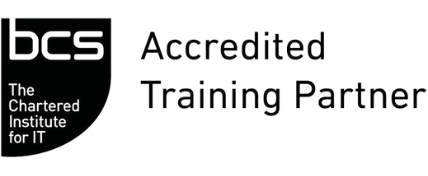Course Overview O v e r v i e w
- Course Overview
- Course Outline
- What’s Included
- What You’ll Learn
- Exam Details
BCS Foundation Certificate in Architecture Concepts and Domains Overview
The BCS Foundation Certificate in Architecture Concepts and Domains introduces learners to the core elements of architectural thinking, frameworks, and practices used to shape modern business and IT systems. It covers essential terminology, principles, architectural domains, and governance concepts that support effective design and change delivery within organisations.
Formal training helps professionals gain clarity on how architecture fits into organisational structures, guiding better communication between business and technical stakeholders. It builds a strong foundation for those seeking to grow into architecture, solution design, or transformation roles.
At Training Deals, we offer practical, expert-led training designed to make architecture concepts clear and applicable. With flexible learning options, competitive pricing, and dedicated learner support, we help professionals build a strong base for career progression in architecture disciplines.

BCS Foundation Certificate in Architecture Concepts and Domains Outline
Module 1: Fundamentals of Architecture
Meaning and Levels of Architecture
Various Subdomains of Enterprise Architecture and the Interactions Between Them
Purpose and Role of Standards and Frameworks in Architecture
Relevant Frameworks and Professional Standards Which Apply to Architecture
Meaning and Objectives of Governance, Risk Management and Compliance
Architect’s Contribution to a Business Case
Purpose and Methods of Performing Gap Analysis
Range of Drivers for Architecture
Purpose and Use of an Architecture Description
Module 2: Business Architecture
Meaning and Objectives of Business Architecture
Key Artefacts Commonly Used in Business Architecture
Key Activities Undertaken by a Business Architect
Structure and Behaviour of a Business System
Module 3: Applications Architecture
Meaning and Objectives of Applications Architecture
Key Artefacts Commonly Used in Applications Architecture
Key Activities Undertaken by an Applications Architect
Use and Behaviour of Applications in a Business
Purpose and Use of Cross-Reference Grids
Different Kinds of Application
Module 4: Data Architecture
Meaning and Objectives of Data Architecture
Key Artefacts Commonly Used in Data Architecture
Key Activities Undertaken by a Data Architect
Differences Between Data and Information and How They are Used
Data Structures Used by a Business and/or its Applications
Module 5: Infrastructure Architecture
Meaning and Objectives of Infrastructure Architecture
Key Artefacts Commonly Used in Infrastructure Architecture
Key Activities Undertaken by an Infrastructure Architect
Module 6: Software Architecture
Meaning and Objectives of Software Architecture
Key Artefacts Commonly Used in Software Architecture
Key Activities Undertaken by a Software Architect
System Modelling Techniques
Role of APIs in Software Architecture
Module 7: Security Architecture
Identify the Meaning and Objectives of Security Architecture
Describe the Key Artefacts Commonly Used in Security Architecture
Describe the Key Activities Undertaken by a Security Architect
Identify Legislation and Professional Standards Relevant to Security Architecture
Identify the Key Concepts in Data Architecture Security
Identify the Key Concepts in Applications Architecture Security
Key Concepts in Infrastructure Architecture Security
Module 8: Solution Architecture
Identify the Meaning and Objectives of Solution Architecture
Describe the Key Artefacts Commonly Used in Solution Architecture
Describe the Key Activities Undertaken by a Solution Architect
Describe Different Types of Solution Requirements
Explain the Purpose and Stages of the Solution Architecture Lifecycle
Stakeholder Categories in Solution Architecture

What’s included in this BCS Foundation Certificate in Architecture Concepts and Domains?
- Expert-led Training Sessions by Certified Instructors
- BCS Foundation Certificate in Architecture Concepts and Domains Exam
- Digital Delegate Pack
What You’ll Learn in this Course
This course takes you from understanding the fundamentals of architecture to applying key concepts that support effective decision-making and communication within organisations. Each stage builds knowledge and confidence to contribute effectively in architecture contexts.
Learn the fundamental concepts, principles, and domains of architecture
Learn key architectural terminology, structures, and frameworks
Learn how architecture supports business strategy and technology alignment
Learn the different domains of architecture and their interrelationships
Learn governance and assurance concepts within architectural practice
Learn how to communicate architecture concepts effectively across teams

BCS Foundation Certificate in Architecture Concepts and Domains Exam Information
The BCS Foundation Certificate in Architecture Concepts and Domains Exam assesses candidates’ understanding of fundamental architectural concepts and domains. The format of the exam is as follows:
Question Type: Multiple Choice
Total Questions: 40
Total Marks: 40 Marks
Pass Mark: 65% or 26/40 Marks
Duration: 1 Hour
Type: Closed Book

Our Upcoming Batches
Request More Information

Corporate Training
Elevate your workforce with expert-led corporate training that enhances skills, boosts productivity, and aligns teams with your business goals.

Individuals Training
Unlock personal growth and sharpen professional skills with tailored training designed to build your confidence and career success.
Your Path to Professional Recognition
Our path is designed to guide you through each stage with clarity, support and practical learning, helping you achieve your goals with confidence.

Step Forward with Globally Recognised Certification
A recognised certification is more than a credential. It’s proof of your commitment to professional excellence, providing you with the credibility, confidence, and global reach to advance your career in exciting new directions.
Globally Certified Professionals Over Time
Career Growth
81%Certified professionals reported receiving a promotion after earning their certification.
Global Opportunities
89%Certified professionals experienced access to new career opportunities, including leadership roles and global positions.
Not able to find what you are looking for
Our experts will guide you to the right course from thousands worldwide: tailored to your goals.
Frequently Asked Questions
It is an entry-level certification that introduces core architecture principles, frameworks, and domains used to support business and IT alignment.
It builds essential architectural knowledge, enabling professionals to contribute effectively to design, planning, and transformation initiatives.
It is ideal for aspiring architects, business analysts, solution designers, and professionals involved in technology and business change.
Yes, architectural concepts and domains are applicable in IT, finance, healthcare, government, education, and many other sectors.
It provides a structured foundation for pursuing more advanced architecture roles and certifications.
What Our Customers Say About Us
 Matthew Sullivan
HR Business Partner
Matthew Sullivan
HR Business Partner
Our HR team registered for the Change Management Foundation & Practitioner Training Course, and it couldn’t have been more valuable. The team gained practical frameworks to guide employees smoothly through transitions with confidence.
 Olivia Barrett
Operations Manager
Olivia Barrett
Operations Manager
Our operations staff completed the Lean Six Sigma Green Belt Training Course, and it has been transformative. We can now identify inefficiencies quickly, and the tools we learned are already improving performance across the team.
 Benjamin Foster
Product Manager
Benjamin Foster
Product Manager
Our product team took part in the Agile Project Management Foundation & Practitioner (AgilePM®) Training Course, and the difference is remarkable. We’re now more adaptive, collaborative, and efficient in managing change.
 Lucy Harper
IT Support Lead
Lucy Harper
IT Support Lead
Our IT support unit attended the ITIL® 4 Foundation Training Course, and the results have been impressive. Processes are smoother, collaboration has improved, and the team finally speaks a common language of service management.
 Edward Clarke
Programme Manager
Edward Clarke
Programme Manager
We joined the PMP® Certification Training Course as a leadership group, and it was outstanding. The trainer made every concept practical, and the exam preparation resources helped the whole team feel ready to tackle complex projects.
 Amelia Rhodes
Project Officer
Amelia Rhodes
Project Officer
Our project office completed the PRINCE2® Foundation & Practitioner Training Course, and it has brought real clarity to how we manage projects. The trainer’s examples were excellent, and the team now follows a structured approach with confidence.

























